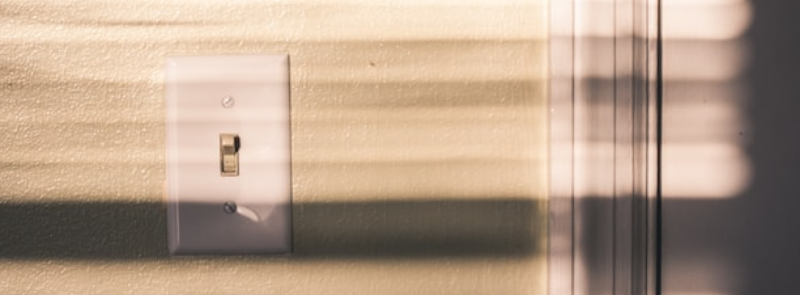
When It Occurs
Annually First Friday in March
Timeline
Days Passed (1087)
# Hashtags
#NationalDayOfUnplugging #DayOffDigital
The National Day of Unplugging is observed every first Friday in March, encouraging individuals to spend a full 24 hours disconnected from their electronic devices. Participants are encouraged to steer clear of social media, electronics, and technology from the moment they wake up until they go to bed. The act of disconnecting from technology offers individuals substantial benefits, as exemplified by the essence of this holiday.
History and Origins of National Day of Unplugging
-
Creation:
- National Day of Unplugging was founded in 2009 by the Reboot organization, a nonprofit group that aims to reinvent Jewish traditions and culture in modern life. The day was inspired by the Jewish tradition of Shabbat, a weekly day of rest that includes abstaining from work and electronics, allowing individuals to focus on family, spirituality, and relaxation.
-
Purpose:
- The primary goal of National Day of Unplugging is to raise awareness about the overuse of technology in daily life and its potential impact on mental health, relationships, and overall well-being. The day encourages people to take a step back from their devices and engage in more meaningful, offline experiences.
Significance of National Day of Unplugging
National Day of Unplugging holds significance for several reasons:
-
Promoting Mindfulness and Mental Health:
- Constant connectivity can lead to stress, anxiety, and burnout. National Day of Unplugging encourages mindfulness by promoting a break from the digital world, which can help reduce stress and improve mental clarity.
-
Strengthening Relationships:
- The day provides an opportunity to focus on face-to-face interactions and deepen connections with family, friends, and community members. By putting down devices, people can engage in more meaningful conversations and activities.
-
Encouraging Reflection:
- Taking a break from technology allows individuals to reflect on their relationship with digital devices and how it impacts their lives. It can lead to a better understanding of the balance needed between online and offline life.
-
Fostering Creativity and Productivity:
- Disconnecting from digital distractions can free up time for creative pursuits, hobbies, and other activities that may have been neglected. It can also lead to increased productivity in tasks that don’t require technology.
How to Observe National Day of Unplugging
There are many ways to observe National Day of Unplugging, each focusing on disconnecting from technology and reconnecting with other aspects of life:
-
Unplugging Devices:
- The core practice of the day is to power down all digital devices, including smartphones, computers, tablets, and televisions, for 24 hours. This can be challenging but is central to the experience.
-
Engaging in Offline Activities:
- Use the time away from screens to engage in offline activities such as reading, writing, drawing, hiking, cooking, or playing board games. These activities can be both relaxing and fulfilling.
-
Spending Time with Loved Ones:
- Spend quality time with family and friends without the interference of technology. This could involve having a meal together, going for a walk, or simply talking and catching up.
-
Practicing Mindfulness and Meditation:
- Take the opportunity to practice mindfulness or meditation. This can help in reducing stress, improving focus, and fostering a sense of inner peace.
-
Exploring Nature:
- Reconnect with nature by spending time outdoors. Whether it’s a walk in the park, a hike in the mountains, or simply sitting in your backyard, nature provides a perfect setting for relaxation and reflection.
-
Reflecting on Technology Use:
- Use the day to reflect on your technology habits. Consider how much time you spend online, what impact it has on your life, and how you might adjust your usage to create a healthier balance.
-
Participating in Community Events:
- Some communities organize events in conjunction with National Day of Unplugging, such as group activities, workshops, or volunteer opportunities. Participating in these events can enhance the sense of community and shared experience.
-
Creating a Family Unplugging Challenge:
- Families can create an unplugging challenge, encouraging all members to participate in the day together. This can be a fun way to bond and establish new family traditions.
The Importance of Digital Detox
National Day of Unplugging highlights the growing need for what is often called a "digital detox." In an age where many people are constantly connected to their devices, taking intentional breaks can have significant benefits:
-
Mental Health:
- Studies have shown that excessive use of technology, especially social media, can contribute to anxiety, depression, and a sense of isolation. A digital detox can help alleviate these issues by reducing the constant bombardment of information and allowing the mind to rest.
-
Sleep Improvement:
- The blue light emitted by screens can interfere with sleep patterns, making it harder to fall asleep and stay asleep. Unplugging, especially in the evening, can lead to better sleep quality.
-
Enhanced Focus:
- Without the constant distractions of notifications and online browsing, individuals often find it easier to focus on tasks and be more productive.
-
Reconnecting with Physical Activities:
- Unplugging encourages people to engage in physical activities, whether it’s exercising, gardening, or simply taking a walk. These activities are essential for physical health and well-being.
Conclusion
National Day of Unplugging is a timely reminder of the importance of stepping away from the digital world to reconnect with ourselves, our loved ones, and the world around us. By observing this day, individuals can experience the benefits of a digital detox, including improved mental health, stronger relationships, and a greater sense of balance in life. While the day itself lasts only 24 hours, the insights gained from unplugging can inspire more mindful and intentional use of technology throughout the year.


